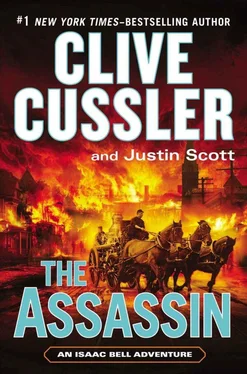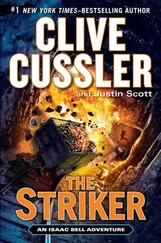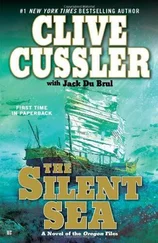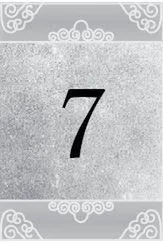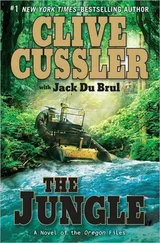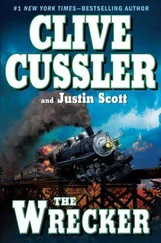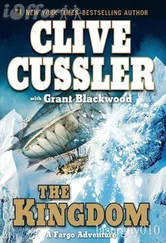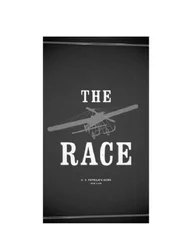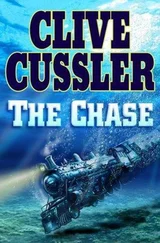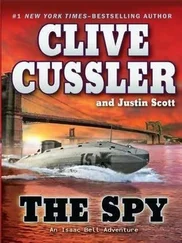* * *
“Hold it!” said Isaac Bell.
They had just stepped down from the tram to Erevan Square and were hurrying across the busy plaza toward the government building next to the Russian State Bank when Bell saw the gleaming black pompadour that crowned the Social Democrat Josef.
“Is that who I think it is skulking at the tram stop?” asked Wish.
“Josef.”
With a furtive glance over his shoulder, revealing beyond a doubt that it was he, Josef ran to jump on the tram leaving for the railroad station.
“What’s he up to?” said Wish.
Rockefeller started to make a beeline for the telegraph.
“Grab him, Wish.”
Wish snared the plutocrat.
“What? What?”
“Just wait,” said Wish. “Something’s up… What is it, Isaac?”
Bell had spotted three or four workmen in the crowds whom he might possibly have seen with Josef earlier on the road. Aware that he was sensing more than seeing, he looked up and scanned the tops of the two- and three-story buildings that bordered the open space. He could feel stress in the air, almost as if every person bustling about his business was about to stop breathing.
Suddenly two enormous carriages raced into the square. Thundering alongside them, Cossack outriders brandished lances and rifles. Heavy as freight wagons yet high-wheeled and fast, they were pulled by teams of ten horses. Their coachmen, enormous three-hundred-pound men in greatcoats, hauled back on their reins and the carriages and outriders came to a banging, clashing halt in front of the elaborately decorated stone edifice that housed the Russian State Bank.
Bell motioned urgently to Wish.
Moving as one, they backed their people away.
The Cossacks looked formidable and others in the crowds retreated, too. But the men Bell had noticed a moment earlier edged closer. Others, dressed in urban working garb, converged on the carriages. Bell looked up again. Now he saw men on the roofs.
“Isaac!” said Wish.
“I see them,” said Bell. “It’s a bank robbery.”
Expropriation,” said Wish Clarke, “is the word favored in the revolutionary lexicon.”
“Bank robbers!” said John D. Rockefeller. “We must inform the police… Officer!” He stepped into the street, waving at a Cossack.
“No,” said Isaac Bell, blocking him and forcing his arm down. “They’ve got twenty men around the square and on the roofs. The cops can’t stop it. They’ll only make it bloodier.”
“You should not have given them that gun.”
“It would appear that way,” Wish said serenely.
“Speaking of the devil…” said Bell.
The tall detective drew his revolver and herded Edna, Nellie, and Rockefeller toward the nearest street out of the square as Wish forged ahead, clearing a path for their retreat.
“Here he comes.”
A two-horse phaeton charged into the square.
A gunner and a belt feeder hunched over the Maxim gun. They had perched the Sokolov mount up on the high back bench where the driver ordinarily sat. The revolutionary handling the reins had shifted to the lower front bench.
The gunner triggered the weapon with an unearthly roar.
Shooting over the driver and horses’ heads, he tried to aim at the bank carriage. People ran from the noise, which was amplified and echoed by the buildings, and fled the galloping horses, whose iron shoes threw sparks from the cobblestones.
The phaeton leaned into a sharp turn, tall wheels skidding. Bell hoped the weight of the machine gun would capsize the inherently unstable vehicle. But just as it seemed it would spill the attackers to the ground, the wheels slid on the cobbles and it righted itself.
A bomb sailed from a roof, trailing the smoke of a fuse. It detonated in the air with a flash and a loud bang that scattered the Cossacks on rearing mounts. A second bomb flew from a roof. It landed on the cobblestones, bounced under the team pulling the lead money carriage, and exploded, blowing open the doors of the carriage.
Men, women, and animals screamed.
The revolutionaries dove into the maelstrom. Firing pistols, they ran to the carriage. One man leaped into it and threw bulging bank sacks to his partners. The Maxim gun kept firing.
The phaeton lurched and skidded and the gunner and belt feeder held on by clinging to the weapon. Bullets aimed at the bank carriage raked the rooftops instead. Then the driver got his animals under control and pulled up short. Still firing — the weapon had never ceased roaring since they entered the square — the gunner lowered his barrel. The torrent of flying lead stitched a path down the building’s stone walls.
The Maxim exploded with a thunderous Boom! and a ball of fire.
“Darn,” smiled Wish Clarke.
Sheets of flame enveloped the gunner and the belt feeder, the driver and the phaeton itself. The horses bolted. The burning wagon raced across the square and tipped over suddenly. The traces parted. The horses galloped away.
“What happened?” shouted Rockefeller.
“Their gun blew up,” said Wish Clarke. The detective shook his head in mock dismay. “The medicos keep telling me that demon rum plays havoc with one’s powers of memory. I hate to admit they’re right, but it appears that when I filled the Maxim’s cooling sleeve, I must have mixed up the cans of water and gasoline.”
“Railyards,” said Isaac Bell. “Now!”
“But there is no train until tomorrow,” Rockefeller protested.
Bell gripped his arm. “Social Democrat revolutionaries just tried to rob a Russian State Bank. Soldiers were injured. The revolutionaries escaped. The authorities will surround the city and close the roads to capture the criminals and recover the money.”
“But there is no train—”
“We’re taking a different train.”
* * *
“Never, never, never jump on the back of a moving railcar,” said Isaac Bell. “Always hop the front of the car.”
“Why?” asked Edna.
They laid flat on a ballast embankment beside the train tracks a mile west of the Tiflis yards, waiting for an oil train. Bell had chosen the spot for the sharp curve in the tracks that would shield them, though only briefly, from the sight of the engineer and fireman in the locomotive and the brakemen in the caboose. Behind them, a neighborhood of tenements and small factories baked in the sun. No one had ventured out to take an interest in them so far. But they could not count on that, as the police were fanning out from Erevan Square.
“If you slip and fall from the front of a car while trying to hop on,” Bell explained, “you’ll fall to the side of the train. If you fall from the back of a car, you will fall under the wheels of the next car, which will run you over.”
“A memorable thought,” said Nellie.
“Nellie and Edna, you two will go first. I’m afraid you’re on your own. Wish and I will take care of the old man. If either of you can’t get on, the other jumps off again. We stay together. Wish and I won’t make our move until we see you’re both safely on. Nellie, you’ve still got Wish’s gun?”
“Yes.”
“Edna, you’ve got my derringer.”
Edna patted a pocket.
“It appears to be a well-run line, so the brakemen very likely will walk beside the train whenever they stop to inspect their trucks and air hoses. The locomotives I’ve seen are up-to-date Baldwin ten-wheelers with oil-burning fireboxes. They’ll stretch their water stops to about every hundred miles and fuel and relief crews to two hundred. But they’ll have to stop in the mountains to couple on extra pusher engines. Whenever they stop, stay out of sight.”
Wish came running from the head of the bend. “Train coming.”
Читать дальше
